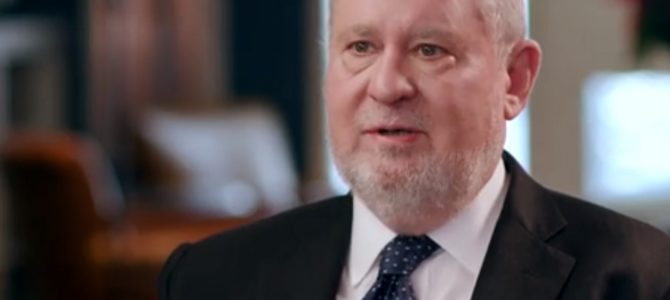
Even though it’s in colleges’ financial and reputational interest to try to generate as many students as possible for themselves, Hillsdale College President Larry Arnn says pushing everyone towards college is a big mistake.
“Everybody needs an education,” he told RealClearEducation’s Nathan Harden in a video interview out Monday. “Everybody needs to know the natural sciences, everybody needs to know history and literature. Good high schools can teach those things. And everybody should have an opportunity to learn all they want to, but the idea that everybody should get a college education, that proposition can only be true if college means a wide variety of things.”
Higher education trying to be all things to all people, combined with seemingly endless government subsidies, has resulted in a huge amount of wasteful spending in higher education, Arnn noted. Inflation-adjusted college tuition has increased far faster than not just inflation but also than housing and health-care costs.
“It is expensive to do what colleges do if they do it really well… There’s four years where you’re not producing anything except knowledge for yourself and others, so that’s expensive,” Arnn says in the interview. “But we can’t really know how much it costs as well as we used to be able to, because it’s very heavily subsidized now, and it’s subsidized in ways that are not market-responsive. And so probably the costs in college are vastly distorted.”
It may seem odd, given such statements, that in other portions of the interview Arnn explained why a good college should not only focus on simple career preparation but something much greater: preparing people to live a good life. Harden pressed Arnn several times to explain why, for example, someone might study something like history instead of engineering, when people can earn a lot more money with an engineering degree.
“Learning how to code doesn’t tell you what you should code… Engineering is a wonderful profession, but engineers might or might not be good or happy people,” Arnn responds at one point. A little further, he expounds on that idea: “Technology is just exercising control over nature. But what do you do with it? Hitler, Stalin and Churchill ruled at the same time, and they used a lot of the same means, and certainly the same weapons. The question is, which was better? And how do you find that out—by learning to code? Or do you read some history and some philosophy and think about it.”
Arnn made it clear that he thinks studying science is a praiseworthy and noble pursuit, but his point is that merely developing the ability to manipulate the world is a lower pursuit than understanding what are good ways to use that power, and towards what goals. Too often, he said, even the colleges that are held in the highest regard in our society give students power without the wisdom to use it for good.
Partly that’s a factor of our culture’s relativism, which simply assumes that what is good is what the people in power currently think. Another major factor is that higher education is largely corrupted by identity politics, which diametrically opposes a belief in any persistent human nature and the existence of objective truth, and even of an objective reality.
“Did you notice, there’s an amazing lockstep nature to the diversity movement and the multicultural movement that has overtaken the modern university,” Arnn observed. “It’s not permitted to think anything but the short list of things, and they call it multiculturalism, the actual truth of what it does is it reduces all cultures to one common standard and they’re all equal.”
Yet this deprives our culture of the ability to call evil cultures evil, such as the reigning culture within Germany between 1943 and 1945. Refusing to make judgment calls such as these, or to subject judgment calls to free speech that allows for examining ideas to test their veracity, starves young people and ultimately an entire culture of the intellectual and moral habits that allow humans to live a good life. In other words, it creates an anti-human, anti-education society.
“I think that a human being is a kind of thing, with a nature. And the problem that’s presented is, How shall I live my life? That problem is not answered by financial well being or comfort alone. We’re all going to die in the end, and we’re all going to face the question, What has my life been for?” Arnn noted. “I’m certain that question will never be permanently forgotten, even if it’s often eclipsed in history. It will always come back.”
That, he says, is the ultimate purpose of an education — to teach people how to live, to introduce them to the great questions that shape a good life and the variety of robust answers people throughout human history have given to such ultimate questions. This gives the young the mental equipment they need to pursue their own good life, rather than leaving them, as our education institutions largely do now, adrift in the ocean with no food, no water, no map, and no rudder.









